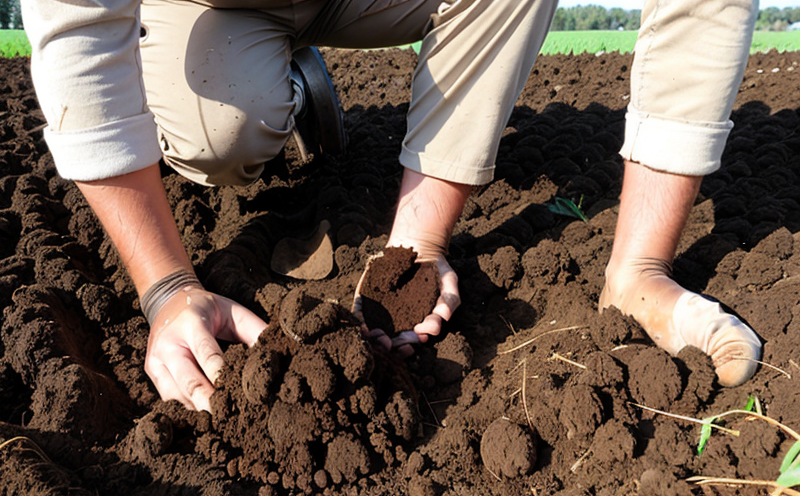Soil Fertility Index Testing
The Soil Fertility Index (SFI) is a comprehensive analytical tool that evaluates the overall health and productivity of soil in agricultural and forestry settings. This testing method provides insights into essential elements such as nutrient availability, pH levels, organic matter content, and microbial activity. Understanding these factors is critical for optimizing crop yields, enhancing plant health, and promoting sustainable land management practices.
The SFI test assesses the balance of macronutrients (nitrogen, phosphorus, potassium) and micronutrients (iron, manganese, zinc), which are vital for plant growth. It also measures soil pH levels, as extreme values can hinder nutrient uptake by plants. Additionally, this test evaluates organic matter content and microbial diversity, both of which play crucial roles in soil structure and fertility.
Accurate SFI testing is essential for quality managers and compliance officers to ensure that agricultural practices meet environmental standards and improve crop productivity. For R&D engineers, the SFI test provides valuable data for developing new fertilizers or enhancing existing formulations. Procurement professionals can use this information to source high-quality soil amendments and additives.
The testing process involves collecting representative soil samples from various locations within a field or forested area. Specimen preparation includes sieving and homogenization to ensure consistent particle size distribution, which is necessary for accurate analysis using advanced instrumentation like inductively coupled plasma mass spectrometry (ICP-MS) and atomic absorption spectroscopy (AAS).
After specimen preparation, the SFI test follows a series of standardized procedures outlined by international standards such as ISO 17259:2014. These include precise pH measurement using pH meters, nutrient analysis via ICP-MS and AAS, and organic matter determination through loss on ignition (LOI). Microbial activity is assessed through cultivation methods or molecular techniques.
The results of the SFI test are reported in a detailed laboratory report that includes numerical values for each parameter tested. These reports serve as valuable tools for decision-makers to implement targeted fertilization strategies, improve soil health, and enhance environmental sustainability practices.
- Why Choose This Test: Accurate measurement of essential nutrients and pH levels ensures optimal plant growth and crop yield.
- Competitive Advantage and Market Impact: Understanding your soil's fertility index allows you to stay ahead in the market by optimizing resource use and reducing waste.





